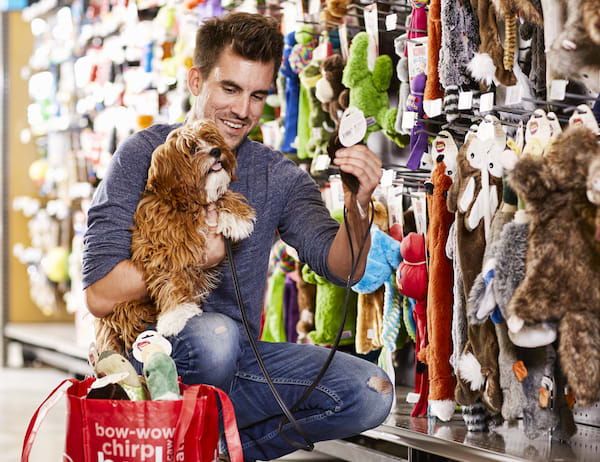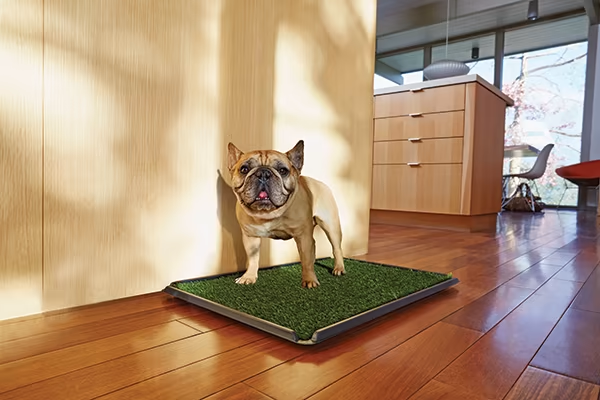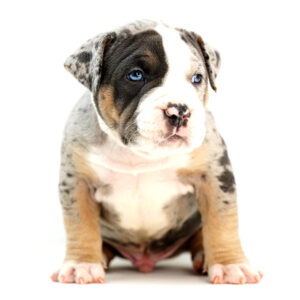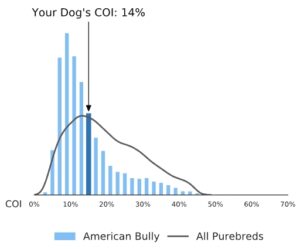Puppy Checklist: Everything You Need for A New Puppy
Welcoming a puppy into your home is an incredibly exciting time filled with laughter, snuggles, fun and that unmistakable (and adorable) puppy smell! But taking care of a puppy comes with a measure of responsibility, and it’s important to prepare your home and family for their arrival.
Puppies–like babies—need a lot of stuff. They require food and water bowls, treats, toys and more to enjoy a healthy and enriched life in their new home.
If you’re welcoming home your first puppy or haven’t been in charge of the shopping list before, you may not know everything you need for your new arrival. Let this new puppy checklist be your guide.
New puppy supplies: The essentials
Prepare for your puppy’s arrival by ensuring you have the basics ready and waiting for them.
Puppy food: Puppies need proper nutrition to grow into healthy adult dogs. To avoid upset tummies during what can already be a stressful time, be sure to have a supply of the same food your puppy has been raised on ready at home.
Puppy treats: Puppy treats play a big role in training your new companion. Look for treats that are soft, chewable and low in fat and calories. Remember that while treats help build a bond and reinforce positive behaviors during training, they shouldn’t make up more than 10% of your pet’s overall diet.
Food and water bowls: Your puppy should have dedicated food and water bowls. While you may put out your puppy’s food bowl only at mealtimes, fresh water should always be available. If you find your puppy eats too fast, consider a slow-feeding bowl, designed to help your puppy eat at a more appropriate pace.
Collar, harness, leash and I.D. tag: Walking your new puppy is a great way to get active and helps your puppy socialize and learn leash-walking manners. You’ll need a secure and sturdy leash and collar before you get going. If your puppy pulls, ask a dog trainer about alternative options that can help discourage the behavior. Collars should be adorned with a filled-out identification tag that includes your puppy’s name and your contact information.
Crate: House training is a big part of new puppy parenthood, and it requires patience and dedication. Crate training allows your puppy to have a safe-feeling place of their own in your home while also helping to minimize accidents on the carpet and inappropriate chewing on unattended shoes and other items. Plan to crate your puppy whenever you cannot watch them, including when you’re out of the house at work and overnight while you’re sleeping.
Cleaning products: New pet parents should anticipate accidents. Look for an enzyme cleaner to help remove urine stains, and stick to pet-safe cleaners. Be prepared for shedding and dog hair in your home. Vacuums with pet-hair extensions or capabilities can come in handy.
Puppy toys: All dogs need mental stimulation, and toys are a great way to play and interact with your new puppy. Look for toys designed for puppies—they’re usually smaller and work better with their puppy teeth—and consider interactive treat toys and puzzle toys to keep your puppy engaged and busy. Dedicate time in your day for playing and building your bond.
Dog bed: Although your puppy may sleep in a crate at night, it’s important to buy your puppy a dog bed. Your puppy can rest on the bed during the day, and it can be another place they know is theirs and available to go to for breaks. When looking for the right dog bed, be sure to get one that can accommodate your puppy’s breed and size as they grow while also keeping in mind that some puppies may decide to chew their bed if left alone. A throw blanket or bed made of durable material may be best for teething puppies - along with supervision.
Shampoo and grooming tools: Even if you plan to take your puppy to grooming appointments, you should have basic grooming products at home. Dog-friendly shampoo, a comb, a brush, nail clippers and styptic powder are essential tools to have on hand. When bathing your puppy at home, always use a shampoo designed specifically for dogs. Never use human shampoo on your puppy.
Medications and preventive measures: Talk to your veterinarian about any medications and preventives your puppy should have. These could include flea & tick prevention and a monthly heartworm preventive.
Puppy training tips
New pet parents should expect to spend ample time on training. This includes potty training, crate training and teaching new cues. Follow these tips for successful puppy training.
Always use positive reinforcement. Never hit your puppy when they do something wrong. Reinforcing with force can cause fear in your puppy and will not help them learn. Instead, use positive reinforcement methods, and reward your puppy with treats or praise when they do something that you ask them to do. This includes going to the bathroom outside, learning a new trick or walking politely on their leash. Staying positive will help your puppy learn behaviors quickly and effectively.
Socialize your puppy. Socialization is important for all puppies. As your puppy obtains the proper vaccinations, slowly start exposing them to different situations and new pets and people. Keep initial interactions short and build up to longer playdates. When socializing your puppy with new pets and people, always keep a close eye on them to avoid negative interactions and experiences.
Learn about dog body language. Talk to a dog trainer and brush up on dog behavioral cues and body language. Not only will this help you identify when your own puppy is uncomfortable or starting to get agitated, you’ll be aware of the body language of other dogs, too. This can help you intervene before interactions between dogs take a negative turn.
Be consistent in your training routines. Puppies thrive on routines, especially when it comes to potty training and learning new things. Repetition and consistency are key. Dedicate time to training every day in order to help your puppy learn.
How to prepare for your new puppy
In addition to shopping for all the essentials and getting ready for training, there are certain preparations you need to make and things you should consider when bringing home a new puppy. Follow these guidelines to help make the transition as smooth as possible.
Set up your home. Dedicate a room or space in your home for your puppy and their things. This space should include a feeding area and a crate. Make sure it’s close to where you and your family usually congregate e so your puppy doesn’t feel isolated and alone.
Use puppy gates to block off potentially dangerous areas such as stairways or basements. Make sure to puppy proof your home by securing cabinets, tucking away wires and removing any toxic plants from areas your puppy can access.
Find a veterinarian. Your puppy should be seen by a veterinarian shortly after you bring them home. Look for a licensed veterinarian in your area and make an appointment so that your new veterinarian can meet your puppy and provide a general exam.
Set up your schedule. A new puppy requires a lot of dedication and attention. Establish a routine and schedule with other family members, and designate duties so everyone knows their responsibilities. If you have to be away from your puppy for extended periods of time for work, consider hiring a trusted dog sitter, who can come to your home and let your puppy out for playtime and potty breaks.
Your new puppy: Additional considerations
Pet parents have a lot of choices to make when it comes to a new canine companion. Here are a few additional things to keep in mind:
Pet insurance: Although not everyone chooses to buy pet insurance, it could come in handy throughout your puppy’s life as they grow into an adult dog. Pet insurance can help cover veterinary visits or unexpected medical or emergency expenses. Prices for pet insurance vary depending on your pet and coverage options.
Vaccinations and licenses: Find out what vaccinations and licenses are required by your state or municipality. A rabies vaccine is often required, and many states and cities expect dog parents to obtain a dog license.
Additionally, talk to your veterinarian about recommended vaccinations for your dog based on your lifestyle and location.
Day care: If you work a full schedule and can’t be home during the day to watch and interact with your new puppy, consider a daycare provider or bringing in a pet sitter to provide your puppy with socialization, training and stimulation during the day. Day care classes can help your puppy expend energy and learn new things while you’re at work.
Being prepared for your new puppy’s arrival will allow you to focus on bonding with your new pet as soon as you bring them home.









